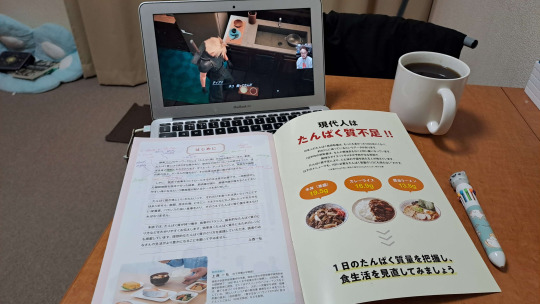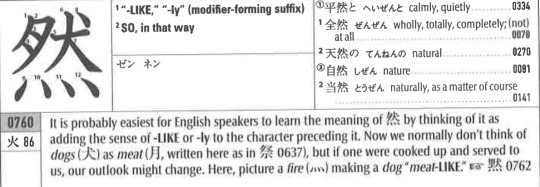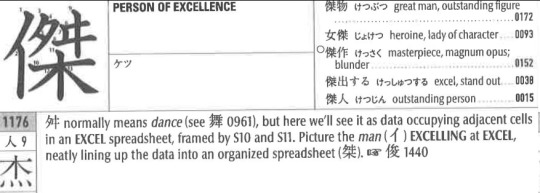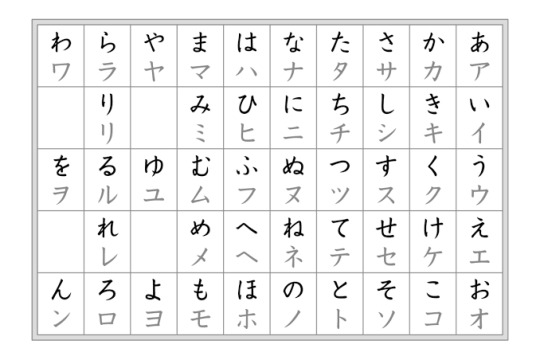#日本語���強
Explore tagged Tumblr posts
Text


03.07.25
⏱️: 3h
started working on my Classical Japanese final and made some good progress!
#sunnie studies#gradblr#study#studyspo#grad school#studyblr#university#study blog#study motivation#study inspo#japanese studyblr#study notes#にほんご#日本語の勉強
171 notes
·
View notes
Text
JLPT N5 - あげる
At its simplest, あげる means “to give”. At the N5 level, it’s used for giving physical things such as presents, money, water (to plants), food (to pets), etc. There is another way it can be used, but that is for a later JLPT level. For now, let’s get into ONE of the ways you can talk about giving in Japanese.
First, here is the vocabulary for this post.

【The Grammar of あげる】
Basically there are 4 parts to every あげる sentence that you should be thinking about. The first 3 are marked with particles and the last part is the verb.

Here is an example sentence:
① 【けんじは】【トムに】【腕時計を】あげた。
= As for Kenji, to Tom, a watch gave
= Kenji gave Tom a watch.
In a sentence like #1 it’s easy to see the 3 parts clearly marked with particles and then the verb at the end. Unfortunately you WILL NOT always see simple sentences like this, so let’s look at each part one by one, along with the cultural context behind あげる.
【The Giver】
Most of the time, the giver will be marked by the は (or sometimes the が) particle. This is because あげる sets up the action of giving from the giver’s perspective.
Sometimes, it is obvious who the giver is, so that phrase can be completely left out of the sentence.
② 【会社の人たちに】【お土産を】あげると思う。
= to the people at (my) company, souvenirs will give I think
= I think I’m going to give the people at my company souvenirs.
In this sentence it would be clear that the speaker is the giver. Therefore it’s not necessary to include a 私は phrase.
【The Relationship Between Giver and Receiver】
Before we move on, let’s get into a very big cultural difference between Japan and English-speaking cultures. When you use あげる, you have to think about the relationship between the giver and the receiver. In English, this doesn’t affect the words we use, but in Japanese it is actually very important when it comes to word choice. Take a look at this image:

The green circle would include close friends, family, your lover, etc. Pets and plants would also fall into this circle. Outside of the green circle are strangers, teachers, professors and depending on your job, your customers. This is because showing respect is directly connected to setting up a kind of psychological distance. You have to work hard and gain trust before you are moved into the green circle.
Some people, like coworkers and bosses, may be inside the green circle in some situations, but outside of it in other situations! A common example is when you go out drinking with coworkers. As the alcohol flows throughout the night you’ll notice that psychological space slowly disappearing - that is until the next day at work. They might act like the person you drank with was a COMPLETELY different person!
This way of thinking is called うちそと, and can be a very difficult part of Japanese culture for many foreigners. Here’s the thing: the culture of うちそと extends to the concept of giving as well.
【Giving Culture and あげる】
When it comes to giving, there are 4 situations where it’s appropriate to use the verb あげる:
① When you give something to someone inside your inner circle
② When you give something to anyone outside your inner circle
③ When someone in your inner circle gives something to someone outside your inner circle
④ When someone outside your inner circle gives something to another person outside your inner circle
Numbers 1-3 can be described as the act of giving while moving from a smaller circle to a bigger circle. Number 4 can be described as giving that doesn’t happen in your inner circle.

There are of course more possibilities when it comes to giving (and receiving). However, those situations won’t use the verb あげる!
【What Is Being Given】
In most sentences, whatever is being given is very simply marked with the を particle. However, there are times when the を particle or the positioning of what is being given will change. Take a look at these three example sentences:

Example 3a is the “default version”. The doll is marked with the を particle so we immediately know that it will be given to someone (the section manager’s wife).
For example 3b I want you to imagine that you are in a souvenir shop. You’ve bought a couple of things already, but you haven‘t decided which gifts will go to whom. All of a sudden, you see a doll that catches your eye. You immediately think to yourself, “that doll is perfect for the section manager’s wife”. Putting the item being given (that is, the doll) at the head of the sentence shows that 1) you are putting the focus of your sentence on that item and 2) there is a kind of impulsiveness to the giving. It’s kind of an instant decision.
Compare that with example 3c. Now I want you to imagine that you are in your house. You bought a bunch of dolls but you haven’t decided which one will go to whom. You pick up one of them and after some thought you say, “Ok I’ll give THIS one to the section manager’s wife.” Marking the doll with は serves to emphasize that there are several dolls, but you are highlighting one of them for a specific reason. It also shows that it WAS NOT an instant decision; some thought went into your decision.
This kind of distinction takes a really long time to understand and really “feel” but I hope that by explaining it to you now, it might stay with you somewhere deep inside your mind. You might even experiment with using sentences like 3b and 3c and surprise your Japanese friends!
【Alternative Verbs】
Lastly, let’s talk about your choice of verbs. You can actually adjust the level of “closeness” that the reader / listener feels by changing the verb that you use! あげる, あげた, あげます, あげました, etc. is used for a “default” level of closeness.
However, if the receiver is someone in a higher social position (for example a professor, a doctor, a boss, a politician, etc.) you would instead use the similar verb さしあげる. This verb actually serves to humble yourself - and thus elevates the listener / reader.
④ 【この本は】ただでさしあげます。
= as for this book, for nothing will give
= I will give you this book for free.
From this sentence you can tell that the giver and the receiver are on different levels, socially. (This is a little different than うちそと.) The listener will feel an elevated level respect simply by hearing the さしあげる verb.
On the other hand, if the receiver is someone VERY close to you, you can show that closeness by using the verb やる instead of あげる. やる is often used with pets and plants.
⑤ 【彼女は】【犬に】【えさを】やるのを忘れた。
= as for her, to (her) dog food giving forgot
= She forgot to give her dog food.
As it turns out, this is why I keep on saying “what is given” instead of “a present” or “a gift”. Giving water to plants or food to pets is not a present or a gift.
Here is a visual representation of the 3 different verbs that you can use when talking about giving (from the giver’s perspective):

Here is 1 last example:

= as for apples I give to you, there are none
= I don’t have any apples to give you.
As you can see in #6, it’s possible to state a giver, a receiver and then あげる in order to describe what is being given. Once you do that, you will then have a topic which you can then go on to make a comment about!
【Conclusion】
So there you have it! あげる and its related verbs (さしあげる and やる) all express the idea of giving from the giver’s perspective. However, you have to keep the Japanese concept of うちそと in mind. Later we’ll talk about giving but from the receiver’s perspective. Stay tuned!
Rice & Peace!
-AL (アル)
👋🏾
#日本語#japanese studyblr#japanese grammar#japanese language#isshonihongo#japanese culture#あげる#jlptn5#jlpt#japanese#learn japanese#japanese lesson#japanese study#studying japanese#japaneselessons#learnjapanese#japanese langblr#japanese vocab#japanese vocabulary#language#languages#language study#language studyblr#language blr#日本語の勉強#にほんご
162 notes
·
View notes
Text
The Difference Between シ and ツ
The secrets to easily recognizing these kana are hidden in the stroke order!
(images from japanesewordswriting.com)
SHI し シ


Hiragana し begins with a long vertical stroke down the left side, and ends with a swish to the upper right.
Katakana シ begins with two small lines along the left side, and ends with the same swish to the upper right that its hiragana counterpart had.
You can tell that シ is し because the lines on シ will be coming from the left side!
TSU つ ツ


Hiragana つ begins with a long horizontal stroke across the top, and curves down with a swish to the bottom left at the end.
Katakana ツ begins with two small lines along the top, and ends with the same swish to the bottom left that its hiragana counterpart had.
You can tell ツ is つ because the lines on ツ will be coming from the top!
More Pics to Further Illustrate




Hopefully this helped someone out there! Best of luck in everyone’s studies!
#japanese#japanese langblr#japanese language#japanese translation#japanese learning#japanese study#japanese studyblr#japanese studyspo#日本語#日本語の勉強#hiragana#katakana#learning japanese#studying japanese
150 notes
·
View notes
Text

Grammar Points
Passive verb conjugation (拾う➝拾われる)
ちゃ = informal contraction of では that functions as a conditional statement
Short form verb conjugation (~た = plain past tense)
~んだ (casual, spoken form of のだ; used to provide an explanation or to emphasize a point)
~がる (expresses someone's desire or wish in the third-person, meaning someone else wants to do something)
~みたい (looks like; seems like)
Question: How does 生きていけない work? 生きて is the て form of the verb 生きる, but what is the いけない ending? It's not 〜てはいけない so what is it? A search online revealed it could be the potential form of the verb 行く, which is 行ける, meaning "to be able to go" or "to be able to do something." Is this correct? 🤔

#japanese#japanese language#langblr#japaneseblr#jpnlangblrnet#japanese langblr#manga#日本語#勉強#マンガ#チーズスイートホーム
117 notes
·
View notes
Text
Don’t fear unknown words
(Note: With this post I just want to share thoughts and tips based on my own experiences and observations. If you have a different opinion that's fine. Language learning is an very individual process. Everyone has different goals and preferences. Try different things and do what works best for you.) Reading is an effective way to increase your vocabulary. But the really interesting books are often very difficult for a language learner (especially if you have little to no experience with native level books). Looking at a page full of unknown words can be intimidating. And if it’s a physical book, reading even a few pages takes ages if you need to look up many words. Reading texts above your current level can be slow and difficult.
From time to time I see language learners who tend to avoid books for natives and keep studying from textbooks or apps to “prepare“ themselves until they are “ready“. And I understand their decision. Textbooks and language learning apps provide structure and present the language in manageable chunks. They are an important first step and they can be a great resource for intermediate learners. Please use them to learn the basics and as a reference but keep in mind that they can only get you to a certain level. It’s obvious, but books for native speakers are not written with language test levels in mind (in the case of Japanese the JLPT). A book for natives can contain words of all levels. For example: The language used in books for a young audience is usually easier than for adults, but even books for kids can contain words that are not in your textbook. On the other hand, novels for adults contain not only abstract and specialized words but also many common words you probably already know. To put it simply: There are no strict levels in the "wild". That’s why you need to learn to deal with the language outside of textbooks. These resources help but they just can’t teach you everything. I mean, it would be extremely unrealistic to expect that you just need to study enough textbooks or completing all levels of your language learning app and then you are able to understand any novel for adult natives without look ups. If you want to learn to read at the level of an adult native speaker, you need to face this challenge and start reading these books at some point — and I mean many of them. No matter how much you prepared yourself through textbooks and apps, you will run into a ton of new words and phrases. This is intimidating at first, but there’s no way around it. You learn simply as you go by trying your best to understand and looking up words, phrases and grammar points. If you are only used to textbooks and apps, it’s absolutely normal that you struggle for quite some time. Don't worry! It gets easier the more you expose yourself with content for native speakers.
What is intimidating today will feel normal for you in the future. Keep going, don’t fear challenges, be open minded and take your time — and you will be able to tackle more and more difficult content.
Tips and recommendations

I myself am at a point where I’ve read around 100 books in Japanese. Many of them were manga, the rest were light novels, novels and a few non-fiction books. The level of difficulty of these books varies. I started with easier books and tried to read more and more challenging ones. I also regularly play video games in Japanese. A few examples:
Manga
名探偵コナン (has full furigana, it’s quite challenging but you’ll learn a ton of expressions and words from a wide range of real wold topics, strongly recommend it)
ナルト (typical battle shonen manga, full furigana, much easier than コナン)
Silver Spoon (full furigana, lots of specialized vocab and therefore difficult, but also very fun)
バクマン (one of my favorites, very enjoyable but also difficult)
らんま 1/2 (I love this series, it has full furigana and is one of the easier manga I've read so far; just be prepared that it contains a bunch of "fantasy" words like attack names etc.)
Novels and Light Novels
ハイキュウ 小説版 (this was challenging at first because the author uses a quite rich vocabulary, the stories are not very complex though)
名探偵コナン (I’ve read several novel versions of the Detective Conan movies, the writing style is quite easy to understand, they cover various topics and they have full furigana, I strongly recommend them)
ハリー・ポッター 1 to 4 (the beginning was hard and sometimes I was a bit lost what happens but the overall difficulty is okay; there are also audiobooks on Audible)
変な家 (I really enjoyed this one, the first chapters are quite easy, only the last one was suddenly very difficult)
Games
Animal Crossing (easy and relaxing game, full furigana)
Ace Attorney (one of my favorites, no furigana, challenging at first but now at Ace Attorney 3 I can play it with only occasional look ups)
Even though I’ve read quite a number of books, I’m far from fluent. I'm currently reading several books: 夏へのトンネル、さよならの出口, リング and ソードアート・オンライン 1. Even with all my experience, there are many new words in all of them. Maybe I should be better at this point, but it is what it is.
However, this is no reason to panic. I think that it’s important to not fear unknown words. New words are not a barrier, they help you grow. Instead of worrying about all these unknown words I take my time, look up words and follow the story. I can enjoy these books even though I don’t understand everything and need to look up many words.
To me, it’s about the journey, not the goal.
Some tips and strategies
Pick a book you’ve already liked reading in your native language (or after watching the movie). This way, you can be sure that you will like the story. This makes looking up many words more bearable. Plus, knowing the story makes it easier to understand the novel in your target language.
If possible, choose the ebook version. Reading digitally makes look ups faster and therefore less frustrating. Because it’s almost effortless you can look up many words without burning out. And by looking up more, there are more opportunities to learn new words.
Decide how many words you want to look up per page depending on your needs. Looking up words digitally is fast and almost effortless. This way it’s not hard to look up every word you don’t know. But if this is too much for your taste, just set a limit that makes reading more comfortable for you. You could try to look up only the 3 most important/interesting words per page and see how it goes. Change the number depending on how you feel or how difficult the book is.
It’s okay to not understand 100%. Progress is better than perfection. As long as you read regularly and look up at least some new words, your vocabulary will grow. Don’t worry too much about every single word you don’t know.
Being able to guess words from context is a valuable skill. Try to understand from context first and look up what seems necessary afterwards.
Don’t let yourself get discouraged right away just because you encounter several new words per page. If you start a new book, try to read at least the first chapter. The prologue and the first chapter are usually the hardest, because you need to get used to the authors writing style and the story.
Take as much time as you need. If you lack vocabulary, reading speed is nothing to worry about at this stage. Build up your vocabulary first.
Even if the overall level of difficulty is okay, there can always be paragraphs or chapters where your comprehension suddenly drops. That’s completely normal. Do your best to understand the gist, look up some words and then move on. Focus on the things you can understand.
You don’t need to learn everything the first time you read a book. Don’t worry too much about rare and specialized words, yet. Try to focus on more common words first. Since they come up more often and in different books, they are more useful at this point. Later when you are more advanced, looking up and learning these rather rare words is less overwhelming than in the beginning where everything is new.
A flashcard program like Anki helps to remember words you've encountered during your reading sessions. But instead of adding all new words I recommend to add only words you've seen at least a few times. I put the Japanese word together with an example sentence on the front and reading and meaning on the back. I use it only as a supplement. My daily Anki sessions are between 10 - 15 minutes long. I want to use most of my learning time for reading and listening -- this is where I really learn new words (= by repeatedly seeing them in context). Anki just helps me to build up familiarity with words I already recognize. Anki is not a must, of course. If you really can't stand it, don't use it. Just make sure that you read and listen regulary.
Graded readers can help to get used to reading in your target language. However, the gap between graded readers and easier books for natives can still be quite significant.
#langblr#languagelearning#languageblr#self study#japanese learning#language learning#learning japanese#study japanese#日本語勉強#日本語勉強中
87 notes
·
View notes
Text

This evening's study: annotating a Nutrition magazine with Japanese FF7 Rebirth Let's Play as background noise.
It's been a good weekend so far 😊
#nutcracker nihongo#japanese langblr#learning japanese#japanese studies#日本語を勉強#langblr#language blog#learning languages#if you look closely you can see 'ffvii: on a way to a smile' waiting for me in my reading corner :3#shiny object spotted#yes there is a certain irony to me reading a nutrition magazine while guzzling a giant mug of pepsi zero don't judge me#or do idc it's my day off and i'm enjoying it
87 notes
·
View notes
Text







some of my favourite kanji memory aids I've seen in The Kodansha Kanji Learner's Course
#flowers.txt#japanese#japanese language#learning japanese#langblr#language learning#japanese langblr#japanese learning#language lab#日本語#日本語の勉強#漢字#漢字の勉強
61 notes
·
View notes
Text



I got my N5, I want to be N2 someday
70 notes
·
View notes
Text
[Japanese→English] @smallplasticgoose Japanese Duck Idiom — Color Coded Translation
Link to original post

⎯⎯⎯⎯⎯⎯⎯⎯⎯⎯⎯⎯⎯⎯⎯⎯⎯⎯⎯⎯⎯⎯
鴨が葱を背負って来る
かもがねぎをしょってくる
A duck comes carrying leeks on its back
This is an idiom equivalent to “Along comes a fool begging to be departed from his money.”
⎯⎯⎯⎯⎯⎯⎯⎯⎯⎯⎯⎯⎯⎯⎯⎯⎯⎯⎯⎯⎯⎯
Please correct me if I made a mistake
#color coded translation#japanese to english#japanese#japanese language#study japanese#japanese lesson#japanese vocab#japanese learning#learn japanese#learning japanese#japanese culture#日本語#日本語勉強中#日本語の練習#日本語の勉強#日本語勉強#japanese vocab list#japanese vocabulary
47 notes
·
View notes
Text
部屋探し|Apartment Hunting

Let me share with you my current struggles on finding a place to stay in Japan with this long vocabulary list!
住宅(じゅうたく)housing, residential building
住宅街(じゅうたくがい)residential area
最寄り駅(もよりえき)nearest train station
共同住宅(きょうどうじゅうたく)residential complex, apartment house
不動産屋(ふどうさんや)real estate agent
物件(ぶっけん)object, property (real estate)
ネット上(じょう)on the internet
掲載する(けいさい)post, insert (advertisement)
家賃(やちん)rent
共益費(きょうえきひ)common fee, utility fee
加算する(かさん)add
月額(げつがく)monthly amount
初期費用(しょきひよう)initial costs
入居する(にゅうきょ)move into
翌月(よくげつ)next month
翌月分(よくげつぶん)next month's rent
礼金(れいきん)key money (fee paid for rental rights)
敷金(しききん)deposit
保証金(ほしょうきん)deposit
清掃費(せいそうひ)cleaning fee
火災保険料(かさいほけんりょう)fire insurance fee
内見(ないけん)viewing
賃貸(ちんたい)lease, rent
賃貸借契約(ちんたいしゃけいやく)rental contract
借り主(かりぬし)debtor, tenant
貸主(かしぬし)lender, landlord
大家さん(おおや)landlord
一時に(いちどき)at once
滞納(たいのう)falling behind (with a payment)
Moving into a Japanese property comes with high initial costs which can be broken down into numerous different fees. Unfortunately, share houses are not necessarily fully excluded from this, but it really depends on the company. I'm glad that I could take some time to work and save up money before going to Japan. The first month will be very expensive.
#語彙リスト#japanese langblr#langblr#studyblr#japanese studyblr#learning japanese#japanese vocabulary#japan#japanese#study blog#japanese language#japanese studyspo#study motivation#studyspo#study notes#vocabulary#vocabulary list#jlpt n1#nihongo#日本語#日本語の勉強#life in japan
294 notes
·
View notes
Text


2025/01/31
i’ve been doing some exercises to clean up my handwriting and i got an ereader, which i’ve been loving so far
#lupusmaxima#dark academia#bookblr#chaotic academia#brown#coffee#beige#literature#studyblr#classical literature#kindle#kibo#ereader#books#handwriting#calligraphy#journal#bujo#bullet journal#manga#chi’s sweet home#日本語の勉強
72 notes
·
View notes
Text
Furigana & Okurigana
As you progress with your Japanese studies, you will see two very important kinds of Hiragana. They are called furigana and okurigana. In this post let’s take a look at each of them and how they both help Japanese learners and natives read Kanji!
But first, let me introduce a chart for the vocabulary that you’ll see in this post. Each word is written in Kanji and then in Hiragana, with its part of speech and meaning.

1) Furigana
Furigana, also known as よみがな or ruby, are the Hiragana characters either on top or to the side of Kanji characters.

As you can see, if the writing is horizontal, the furigana will be on top and if the writing is vertical, it will be on the right side. Either way, furigana tell you how to pronounce the Kanji characters.
There may be anywhere from 1 to 5 Hiragana characters represented by a single Kanji character!

We Japanese learners need furigana when we start studying Kanji and reading Japanese text. But Japanese children also need furigana when they are learning Kanji and even Katakana. Here you can see furigana used to learn Katakana characters.

Whether or not you see furigana depends on a few different factors:
the intended readers
the rarity of the Kanji
Generally, you won’t see many examples of furigana. However, if you pick up a book/novel intended for elementary-aged children, you might see lots of furigana. This is because (like us!) they either haven’t learned the Kanji’s readings or the writer intended the Kanji to be read in a certain way.
Some websites, books, IG posts, Youtube videos, etc that are intended for non-Japanese readers will also have a fair amount of furigana. Granted, it is helpful at first, but it’s a good idea to wane yourself off of furigana as you get better (or if you WANT to get better). The more you see a Kanji character, the more likely you are to remember its reading.
Gikun
Sometimes furigana doesn’t actually tell you the reading of the Kanji. Instead it’s used to add details or add shades of nuance, as in the examples below:

In these cases we call the furigana gikun, which loosely translates to “a false reading”.
On the left, the Kanji reads きぼう, which means “desire or wish” but the furigana reads ひかり, which means “light”. This conveys to the reader that light is a metaphor for hope in whatever setting you are seeing that Kanji.
On the right, the Kanji reads ちきゅう, which means “Earth” but the furigana reads ふるさと which means “home town” or “where someone is from”. This tells the reader that someone is an Earthling – as compared to a Martian or an alien from another planet.
This is a more-advanced way that furigana is used, so you won’t see it unless you are reading manga or novels aimed for native speakers.
First the Word, Then the Kanji (Ateji & Jukujikun)
On the day that I arrived in Japan, they asked me for my name in Katakana at the airport. I hadn’t really thought about it so they wrote my name how it sounds to the Japanese ear.
A few days later, I was thinking about this, and it occurred to me that in the same way that they just “assigned me” katakana, I could also give myself Kanji for my name! My name is Albert but I took my nickname Al and “Hiraganized” it, getting ある. At this point I needed 1 or 2 Kanji that sounded out ある. I eventually decided on 亜琉. I’ll come back to this a bit later.
亜琉 is what is called ateji. I started with a word and “worked backwards” to end up with Kanji, based on their readings. Another example of ateji is the Japanese word for The United States. Written with Hiragana it’s あめりか, but written with Kanji it becomes:
亜 read as あ 米 read as め 利 read as り 加 read as か
Keep in mind that these Kanji have nothing to do with the meaning of “America” or “The U.S.” (whatever that is lol). They were only chosen based on the way you read each Kanji. This is the idea of ateji.
A similar concept is Jukujikun. The word あさって means “the day after tomorrow”. When it came time to assign Kanji to this word, the following 3 were chosen:
明 meaning “tomorrow” 後 meaning “after” 日 meaning “day”
You can reasonably see how this combination of Kanji can come to mean “the day after tomorrow”. The thing is, the actual way you read those Kanji are nowhere close to あさって!They were chosen because of their meanings and not their readings. It’s almost the reverse of ateji. 2 more examples are:
今日 is read as きょう but 今 is not きょ and 日 is not う
下手 is read as へた but 下 is not へ and 手 is not た
When it comes to jukujikun, because the furigana can’t be separated between the characters, it will appear either in the middle of the characters or stretched across them.

As for my Kanji, because the characters sound out ある, 亜琉 is ateji. However, I also chose 2 Kanji with meanings that I liked. 亜 means “Asia” and 琉 means “gem” so I chose my name to mean “gem of Asia”.
2) Okurigana
Now, let’s talk about okurigana. It is similar to furigana, except that it only appears next to Kanji. Okurigana is thought of as “hanging off of” Kanji characters.

The okurigana tells you how you should read the 食 Kanji. In this particular example, both words mean “to eat” so mixing them up is not the end of the world (depending on who you are talking with!). Other times, however, the meanings will be drastically different so okurigana is a vital part of Japanese.
Adjectives and Verbs
Most of the time, you’ll find okurigana with adjective and verb forms. This is because they have a core part (called the stem) that will not change, and an ending that changes to add different shades of nuance to the core meaning. Think of the difference between “kick”, “kicks”, and “kicked” in English.

Notice that sometimes the adjective or verb stem doesn’t overlap with the okurigana (Type 1). Other times, part of the stem is included in the okurigana (Type 2). The main thing to remember is, the okurigana is the Hiragana after the Kanji.
Another time you will see okurigana is with compound verbs. This is where two verbs are combined into one. In these cases, there will be okurigana both between and after Kanji characters. Examples are:
思い出す, which means “to remember” 食べ残す, which means “to leave food half-eaten”
Nouns
Most of the time, nouns are made up of only Kanji. However, there are some occasions where they will have okurigana. Most times, they will end in a character from the い VSG.

This is because they actually come from verbs! Here are some examples:
匂い (from 匂う) 好き (from 好く) ーーーーーーーーーー 乗り場 (from 乗る) 立ち飲み (from both 立つ and 飲む)
Other times, they aren’t derived from verbs, they are just simply nouns:
勢い, which means “force, power” 後ろ, which means “behind, rear” 全て, which means “all, everything” 情け, which means “pity, sympathy” 斜め, which means “diagonal, slanted”
Same Kanji, Different Okurigana
The function of okurigana is to point you in the right direction of how to pronounce a given Kanji. There would be no reason for this if each Kanji had only 1 possible reading. As it turns out, a single Kanji can have many different ways to say it. Here are some examples:


As you can see, depending on the okurigana, 汚 can be read as きたな or as よご. On the other hand, the Kanji 広 is read as ひろ in all 5 of those words! For this reason, I would recommend learning Kanji like 広 early in your studies. It will be much easier for you to remember a Kanji with only 1 or 2 readings than a Kanji with many different readings.
Same Kanji, Same Okurigana
It’s rare, but there are times when the okurigana unfortunately won’t tell you decisively how to pronounce the Kanji. Here is an example:

As you can see (with the help of the furigana!) BOTH the Kanji and the okurigana are the same, making them different words but homographs. If it weren’t for the furigana, you might not know which reading of the kanji to use. In this situation, they both mean “to open” but the way and the kind of opening is different. Japanese often separates very similar meanings by using different Kanji. In English, we just take it for granted that you can open your eyes and you can also open a door. In Japanese, they are two different kinds of actions, and so different Kanji are used. (It won’t matter when you speak, but when you write or type, it would be good to be aware of the difference.) In these kinds of cases, you will have to rely on either context or on furigana to know which reading is correct.
Conclusion
As you can see, both furigana and okurigana will help you when it comes to reading Kanji. Sometimes you will have both, other times there will only be okurigana. Later on in the Kanji section, we will take a look at other ways to help you guess a Kanji’s reading. Until then, good luck with your Japanese journey!
And with that, you are finished with the Hiragana section. Congrats!
Rice & Peace,
– 亜琉 (アル)
👋🏾
#learn hiragana#hiragana#japanese language#learn japanese#japanese#study kanji#kanji#learn kanji#japanese studyblr#japanese langblr#learning japanese#japanese kanji#study blr#language blr#日本語の勉強#日本語#日本語勉強#langblr#漢字#isshonihongo
141 notes
·
View notes
Text
Japan Housing Websites (part one)
Want to move to Japan? Me too! Lately I’ve seen a lot of Instagram pages dedicated to showing off cheap homes in Japan. These pages usually just link back to a Japanese real estate website, so I’d like to list some handy vocabulary to help you navigate the sites and find some houses on your own!
Note: This post was made with intermediate level Japanese learners in mind. It's meant to be a vocabulary list with visual examples, not an all-inclusive house buying guide. A complete list of vocab words can be found at the end of the post. For general website navigation, I’d recommend the RikaiChan / RikaiKun extensions which will display a translation of each word you mouse over.
What Websites?
I really like SUUMO, so that will be the site I use for the example pictures. But any website will have more or less the same words!
Navigating the Website

[ 1 ] Creating an Account会員(かいいん)登録(とうろく):Member Registration
[ 2 ] Search探す(さがす):Search / Find This word will come up a lot! The search function may also appear as... 検索(けんさく):Search 物件(ぶっけん)検索:Property Search
Suumo has a nifty map on the front page. If you know the region you'd like to search in, you can choose it here.
[ 3 ] Renting 借りる(かりる):Rent (Borrow) 賃貸(ちんたい):Lease / Rent
[ 4 ] Purchasing買う(かう):Buy
[ 5 ] House Terminology If you've taken a Japanese class, you may have learned that the Japanese word for house is 家 or いえ. Unfortunately, this short and simple word isn't used much on real estate websites. The following terms are typically used instead.
一戸建て(いっこだて):Detached Building A standalone house, as opposed to an apartment or condo.
新築(しんちく)一戸建て:New Buildings
中古(ちゅうこ)一戸建て:Old Buildings 中古 can mean "old", "used", or “secondhand”, none of which sound ideal, but all it means is that the house that has been lived in previously. This is where you find the cheap ones!
Finding Houses

Once you have the region and building type selected, you’ll see a new map you can use to select the prefecture. I'll highlight a few key search methods on this screen.
[ 1 ] Search by Area(エリア)
Click on a prefecture to bring up a checklist of cities and districts. At the bottom of the list, you'll see two options: refining the search further or proceeding with the checked options.

「チェックした市区郡の町名を絞り込む」 "Narrow by town names of checked cities/wards/districts"
市区郡(しくぐん):"City Ward District" 町名(ちょうめい):Town Name 絞り込む(しぼりこむ):Narrow / Refine
「この条件で検索する」 "Search with these conditions"
条件(じょうけん):Condition / Term
The orange number shows how many total properties were found with the checked selections. Click the blue search button if you want to jump straight to the houses without refining the search.
[ 2 ] Search by Railway(沿線)or Station(駅)
Click on a prefecture to bring up a checklist of railways. At the bottom of the list, you'll see two options: refining the search further or proceeding with the checked options.

「チェックした沿線の駅を絞り込む」 "Narrow by stations of checked railways"
沿線(えんせん):Railway / Track 駅(えき):Station 絞り込む(しぼりこむ):Narrow / Refine
「この条件で検索する」 "Search with these conditions"
条件(じょうけん):Condition / Term
Once again, the orange number shows how many total properties were found with the checked selections. Click the blue search button if you want to jump straight to the houses without refining the search.
[ 3 ] Search by Map(地図、ちず) Clicking here will open up a much more detailed map that you can scroll through! Definitely the easiest option, which is why I put it last. :)
The End.
Here's the complete vocab list for ease of viewing:
会員(かいいん):Member 登録(とうろく):Registration 探す(さがす):Search / Find 検索(けんさく):Search 物件(ぶっけん)検索:Property Search 借りる(かりる):Rent (Borrow) 賃貸(ちんたい):Lease / Rent 買う(かう):Buy 一戸建て(いっこだて):Detached Building 新築(しんちく)一戸建て:New Buildings 中古(ちゅうこ)一戸建て:Old Buildings 市区郡(しくぐん):"City Ward District" 町名(ちょうめい):Town Name 沿線(えんせん):Railway / Track 駅(えき):Station 絞り込む(しぼりこむ):Narrow / Refine 条件(じょうけん):Condition / Term
#Japan#Japanese#japanese language#japanese translation#japanese langblr#japanese studyspo#japanese studyblr#japanese learning#japanese study#learning japanese#japan house#moving to japan#japanese vocabulary#日本語#日本#日本語の勉強#日本語勉強
185 notes
·
View notes
Text

I've been struggling with writing kanji characters in the same size as each other, so I searched online for practice sheets I could print out because the 5 mm squares in the Kokuyo Campus notebooks I already have are difficult to write in being so small.
I think I just need to practice writing in bigger squares first, which I had trouble finding online in a good resolution with the dotted crosshairs in the center. So I made my own!
The grids are of different sizes based on writing notebooks that Japanese schoolchildren use:
25 mm squares - 1st grade
21 mm squares - 1st and 2nd grade
18 mm squares - 1st, 2nd, and 3rd grades
15 mm squares - 2nd, 3rd and 4th grades
12 mm squares - 3rd, 4th and 5th grades
10 mm - 4th, 5th and 6th grades
The sheet I made has all six of these sizes in descending order from biggest to smallest. The sizes in millimeters are also provided for reference. More rows for the smallest sizes are included compared to the larger sizes since being able to write small is more useful. A bonus of writing the same kanji multiple times is increased muscle memory, which promotes long-term memory retention.
The design of the sheet mimics what schoolchildren use; it includes dotted crosshairs in each square and space at the top to write the current date. The short line to the left is probably for a child's name, but you could put the topic or subject there or whatever other notes you like.
I hope people find this helpful!
手書きの練習はがんばって!(*´▽`*)
110 notes
·
View notes
Text
Keeping up with my goals!


I'm struggling a lot with the reading section and I really don't know how to fix my reading skills. Everyone suggests to read more but it's so hard to focus and keep reading when you don't understand things and get demotivated. If anyone has any tips for me I would really appreciate it!
Hope you guys are doing great!
#japanese#japanese language#jlpt#japanese books#jlpt n2#languages#studyblr#studying#language learning#study with me#日本語の勉強#にほんご#日本語
138 notes
·
View notes
Text
I often give the kids fist bumps and I thought they were calling it "クールタッチ" (cool touch) but turns out it's グータッチ (which I'm guessing is グー [guu] as in rock from rock-scissors-paper. So it's actually "rock touch" which makes a lot of sense ig)
60 notes
·
View notes